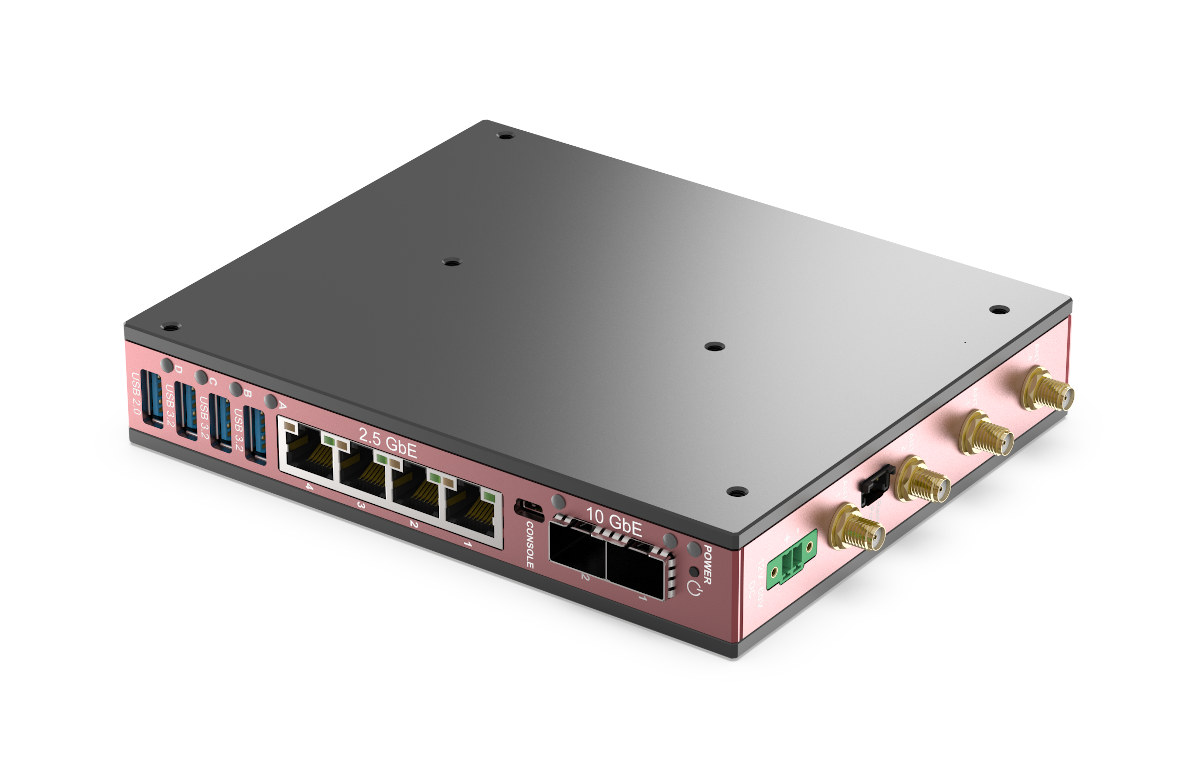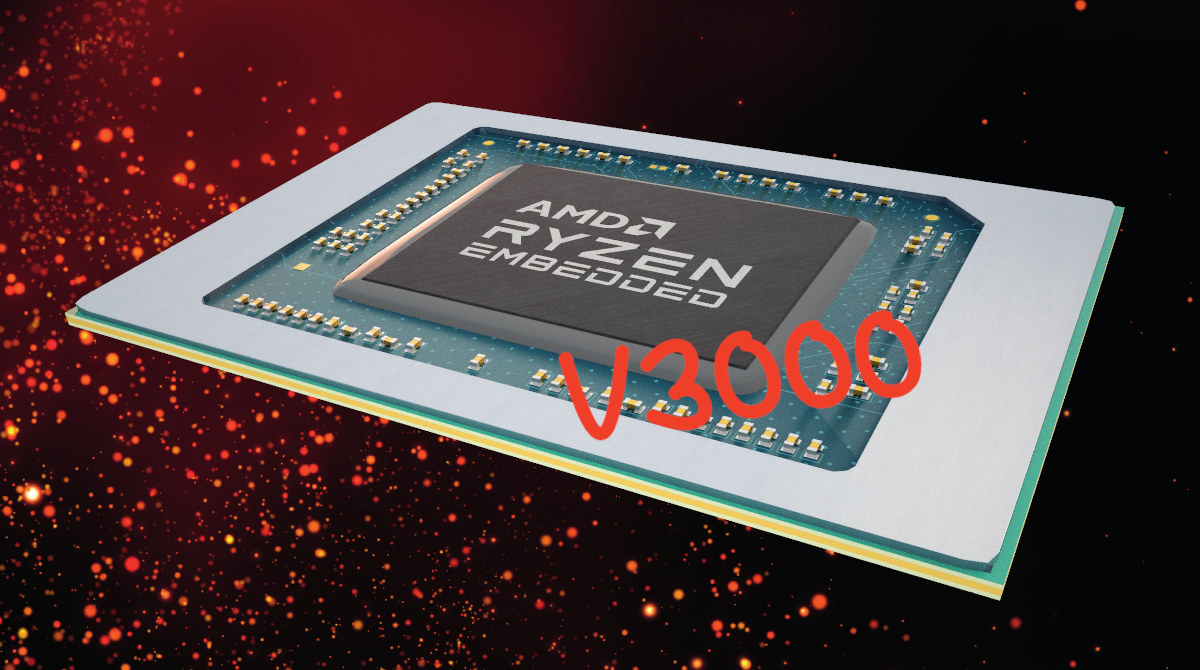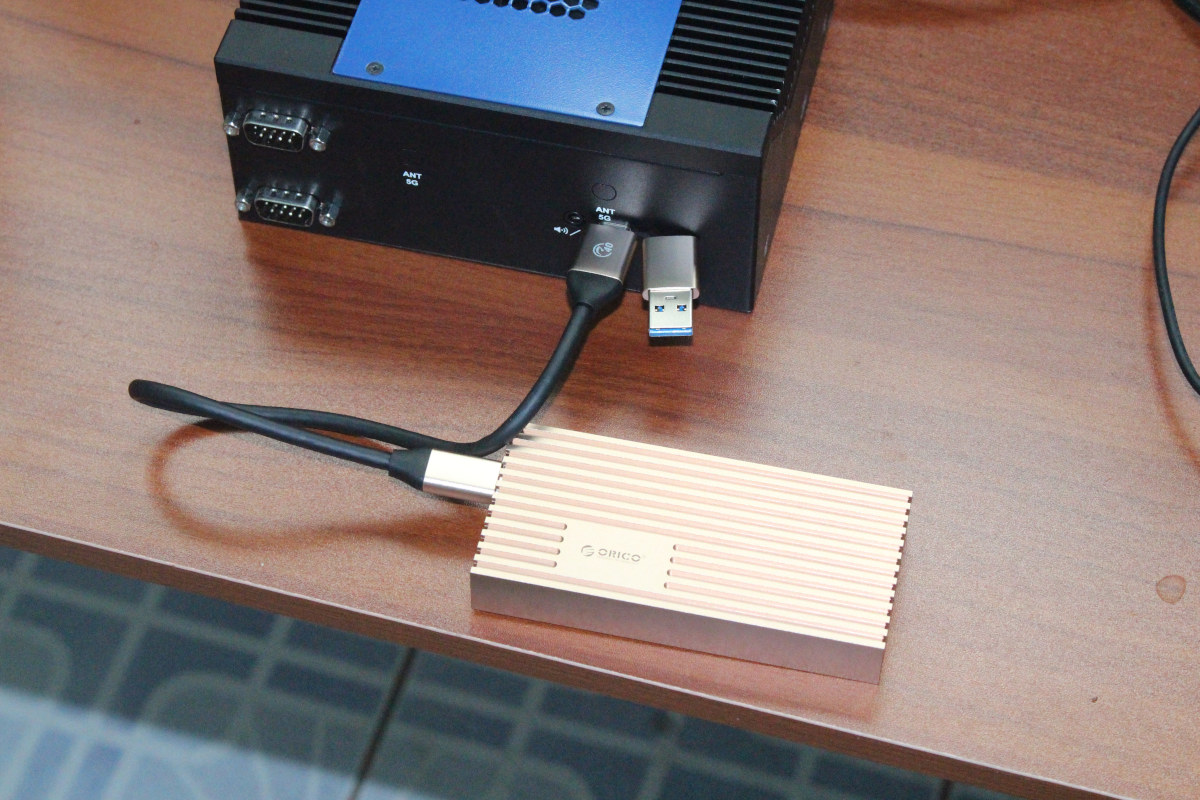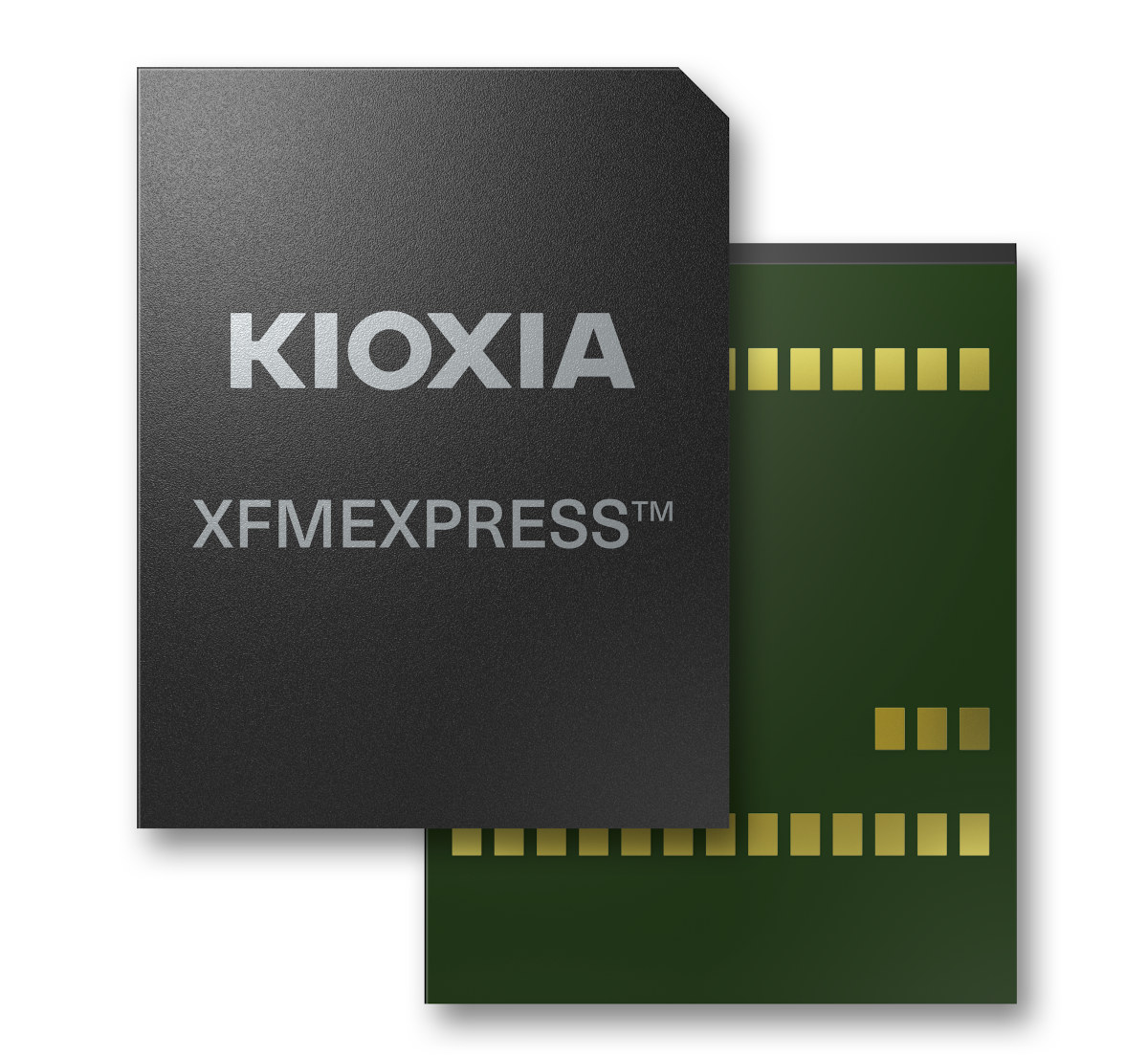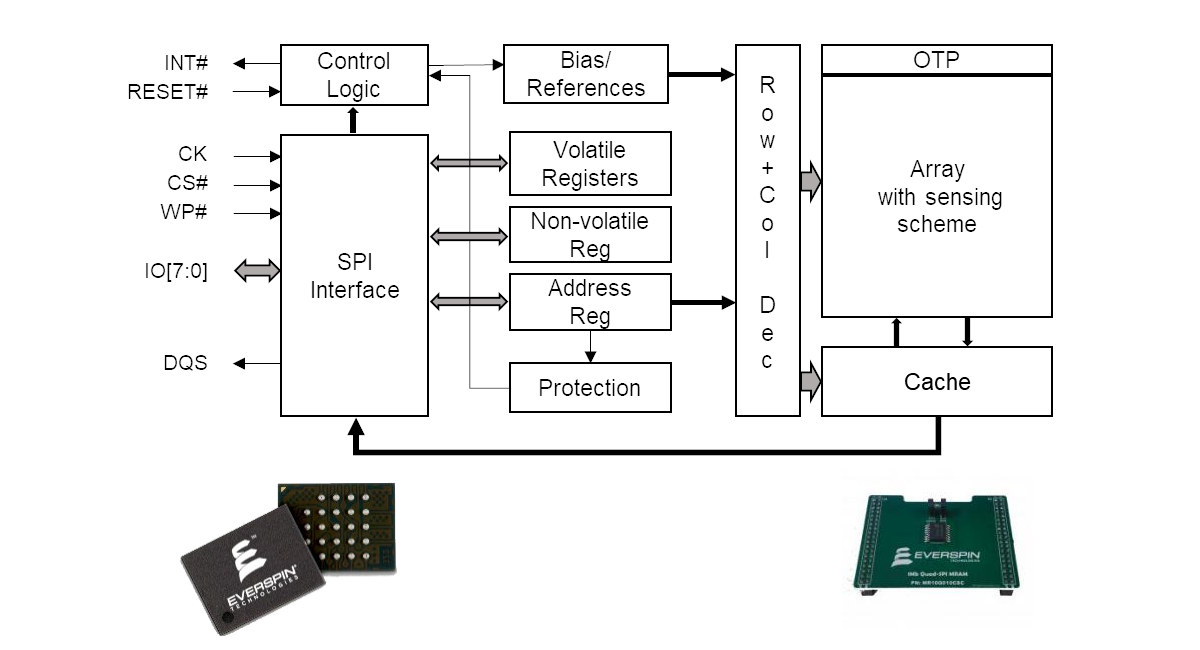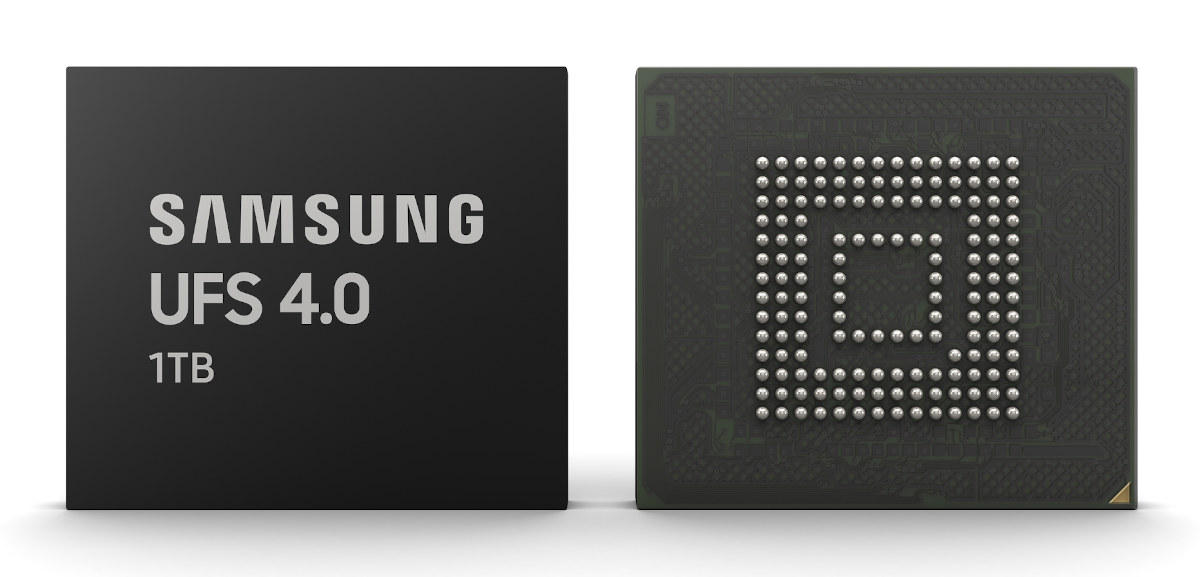SolidRun Bedrock V3000 Basic is an industrial fanless computer based on the new AMD Ryzen Embedded V3000 Zen3 processor family designed for storage and networking applications. More specifically, the embedded computer is based on the AMD Ryzen Embedded V3C48 octa-core/sixteen-thread processor with up to 64 GB DDR5 memory, support for up to three M.2 key-M 2280 NVMe SSDs, and impressive network connectivity options with two SFP+ cages capable of 10 Gbps speeds, four 2.5GbE RJ45 ports, and optional support for WiFi 6, 4G and/o 5G cellular connectivity. Bedrock V3000 Basic specifications: SoC – AMD Ryzen Embedded V3000 family with up to 8C/16T Zen3+ cores @ up to 3.8 GHz; TDP: Up to 45W System Memory – Quad-channel DDR5-4800 up to 64 GB ECC / non-ECC via 2x SODIMM socket. The RAM is conduction-cooled Storage 1x M.2 key-M 2280 NVMe PCIe Gen4 x 4 socket, conduction-cooled, with optional power-loss protection 2x […]
Andes unveils AndesCore AX65 Out-of-Order RISC-V core for compute intensive applications
Andes Technology has unveiled the high-end AndesCore AX60 series out-of-order 64-bit RISC-V processors at the Linley Fall Processor Conference 2022 with the new cores designed for compute-intensive applications such as advanced driver-assistance systems (ADAS), artificial intelligence, augmented/virtual reality, datacenter accelerators, 5G infrastructure, high-speed networking, and enterprise storage. AndesCore AX65 is the first member of the family and supports RISC-V scalar cryptography extension and bit manipulation extension. It is a 4-way superscalar core with Out-of-Order (OoO) execution in a 13-stage pipeline and can fetch 4 to 8 instructions per cycle. The company further explains the AX65 core then decodes, renames, and dispatches up to 4 instructions into 8 execution units, including 4 integer units, 2 full load/store units, and 2 floating-point units. The AX65’s memory subsystem also includes split 2-level TLBs (translation lookaside buffers) with up to 64 outstanding load/store instructions. Up to eight AX65 cores (or should that then be […]
AMD launches Ryzen Embedded V3000 Zen3 processors for storage and networking applications
AMD has just launched the Ryzen Embedded V3000 family of processors with four to eight Zen3 cores, a DDR5 memory interface, twenty PCIe Gen4 lanes, and two 10GbE interfaces that make it ideal for storage and networking applications, especially since there’s no GPU at all. The new embedded processors succeed the Ryzen Embedded V2000 Zen2 family introduced two years ago, and the Ryzen V1000 processors in 2018. For some reason, AMD decided to compare the new V3000 processors against the latter and claims up to 124% greater CPU performance, 50% improved memory transfer rate, twice the number of CPU cores, and improved I/O connectivity. There are five Ryzen Embedded V3000 SKUs at launch with the V3C48, V3C44, V3C18I, V3C16, and V3C14 whose key differences can be found in the table below. The AMD Ryzen Embedded V3C18I “industrial” processor also works in sub-zero temperatures for automotive and industrial applications. Shared specifications […]
Mini review of ORICO “USB 4.0” M.2 NVMe SSD enclosure
ORICO has sent me a sample of a USB 4.0 M.2 NVMe SSD enclosure for review, which was timely as I did not have a fast USB storage option for testing. In this post, I’ll check out the hardware, show how to install an NVMe SSD, and test performance in UP Xtreme i11 mini PC since it happens to come with a USB4 port. ORICO USB 4.0 M.2 SSD enclosure specs and unboxing The exact model I received is the ORICO M234C3-U4 with a Rose Gold aluminum enclosure (107x50x17mm), supporting M.2 M-Key and B+M Key 2230, 2242, 2260, 2280 SSDs (more on that later), and offering up to 40 Gbps through its USB 4.0 port. The device ships with a USB Type-C to USB Type-C/Type-A cable, a thermal pad, a heatsink, two screws, and a multilingual user manual. There’s only one USB Type-C port one the device. M.2 NVMe SSD […]
Imagination unveils IMG RTXM-2200 32-bit RISC-V real-time “Catapult” CPU
Imagination IMG RTXM-2200 32-bit RISC-V real-time CPU core is the first member of the company’s Catapult family comprised of four distinct RISC-V families for dynamic microcontrollers, real-time embedded CPUs, high-performance application CPUs, and functionally safe automotive CPUs. The company says it’s a highly scalable real-time, deterministic, 32-bit embedded CPU, that is feature-rich and flexible in design for mainstream devices, but, excuse the pun, leaves most of the details to your imagination… The new core will mostly be used as a helper core (aka co-processor) in more complex SoCs for 5G modems, cellular base stations, networking solutions for data transfer, packet management, and storage controllers, but may also find its way into smart meters. In all fairness, we do have some limited technical details with L1 cache sizes up to 128KB, I/D TCM sizes up to 128KB, and PMA regions. The real-time core will also include optional features such as single-point […]
KIOXIA XFMEXPRESS XT2 tiny 18x14mm removable NVMe SSD complies with XFM DEVICE standard
KIOXIA Corporation, previously known as, Toshiba Memory Corporation, has started sampling of the XFMEXPRESS XT2 removable PCIe/NVMe storage device compliant with XFM DEVICE Ver.1.0-standard with dimensions of just 18×14 mm. The new storage standard and device are mostly designed for space-constrained applications ranging from ultra-mobile PCs to IoT devices and various embedded applications that may require fast, removable storage. We do not have the full specifications for the XFMEXPRESS XT2, but here are the highlights: Host interface – PCIe 4.0 x 2 lanes, NVMe 1.4b interface with similar performance to M.2 SSDs Removable storage similar to microSD card Dimensions 18 x 14 x 1.4mm (252 mm2 footprint) compliant with JEDEC XFM DEVICE Ver.1.0 form factor 22.2 x 17.75 x 2.2mm when considering the drive & connector As I understand, the new storage device is meant to deliver much higher performance than microSD cards, while providing a thinner and smaller form […]
xSPI MRAM provides an alternative to SPI NOR/NAND flash with up to 400MB/s R/W bandwidth
Everspin has unveiled the EMxxLX xSPI MRAM (Magnetoresistive Random Access Memory) non-volatile memory solution for industrial IoT and embedded systems providing an alternative to SPI NOR/NAND flash with much faster R/W data rates of up to 400MB/s and densities between 8Mbit and 64Mbit. The higher speed is made possible by the new JEDEC expanded Serial Peripheral Interface (xSPI) standard interface and a clock frequency of up to 200 MHz, the maximum supported by the xSPI standard. All chips operate at 1.8V, and the family is offered in 24-ball BGA and 8-pin DFN packages. EMxxLX xSPI MRAM key features and specifications: Density – 8Mb, 16Mb, 32Mb, 64Mb 400MBps sustained throughput with OSPI at 200MHz, DTR, for reads and writes Expanded SPI (xSPI) bus interface supporting Octal, Quad, Dual, and Single SPI protocol Up to 200MHz single and double transfer rate (STR/DTR) for Octal SPI Up to 133MHz, SPI, DSPI, QSPI Data […]
Samsung UFS 4.0 storage to offer up to 4,200 MB/s read speeds, 1TB capacity
Samsung Electronics has unveiled its first Universal Flash Storage (UFS) 4.0 solution based on the company’s 7th-generation V-NAND and a proprietary controller allowing speeds of up to 23.2 gigabits per second (Gbps) per lane or double the previous UFS 3.1 solutions. In more practical terms, Samsung UFS 4.0 storage will deliver a sequential read speed of up to 4,200 MB/s and a sequential write speed of 2,800 MB/s, corresponding to about 2x and 1.6x faster speeds over UFS 3.1 storage. Samsung also claims that power efficiency has been enhanced with a sequential read speed of up to 6.0 MB/s per milliampere (mA), or about a 46-percent improvement over UFS 3.1. An advanced Replay Protected Memory Block (RPMB) is integrated into the chip to store important personal data that can only be read or written through authenticated access, and whose design is said to be 1.8 times more efficient. Samsung UFS […]


